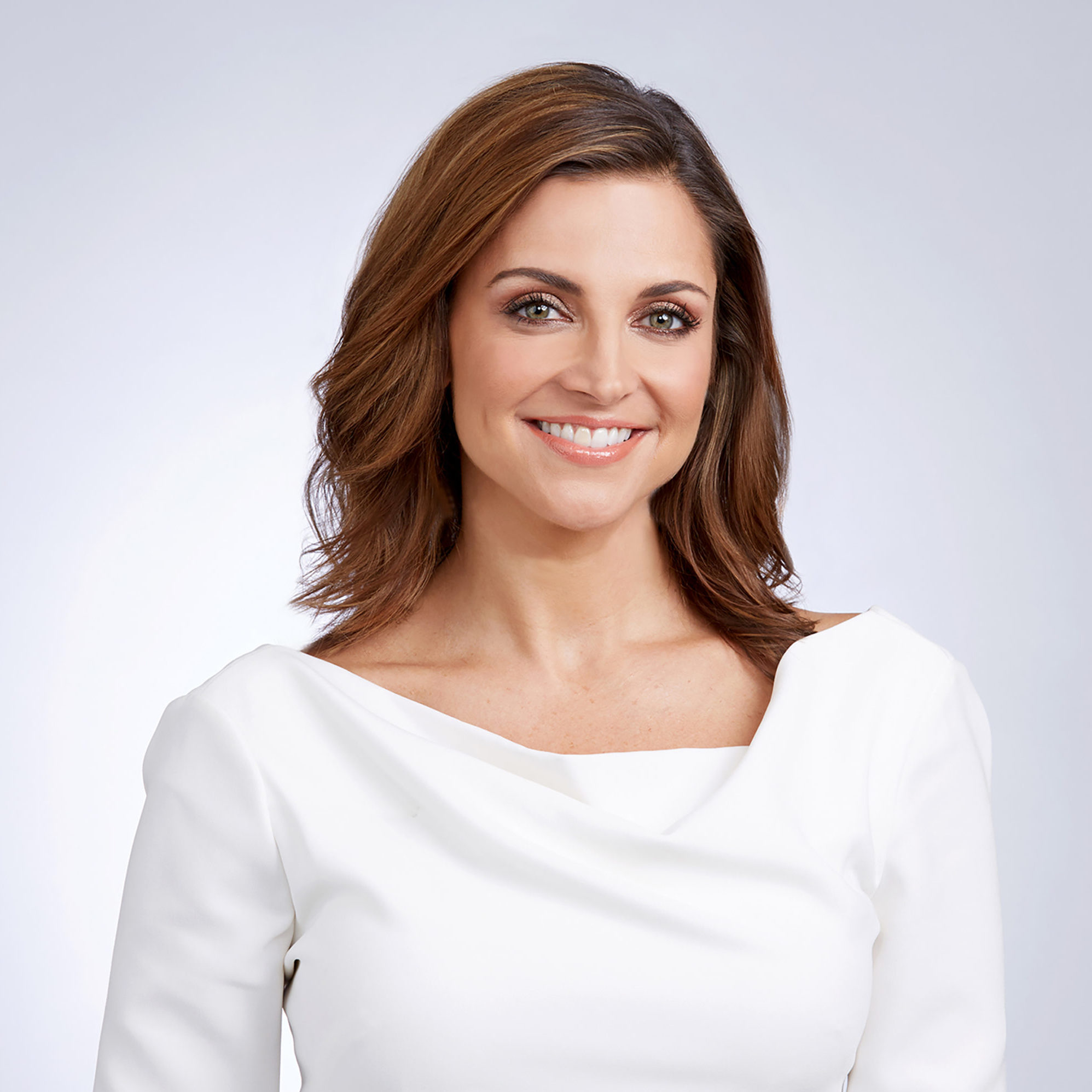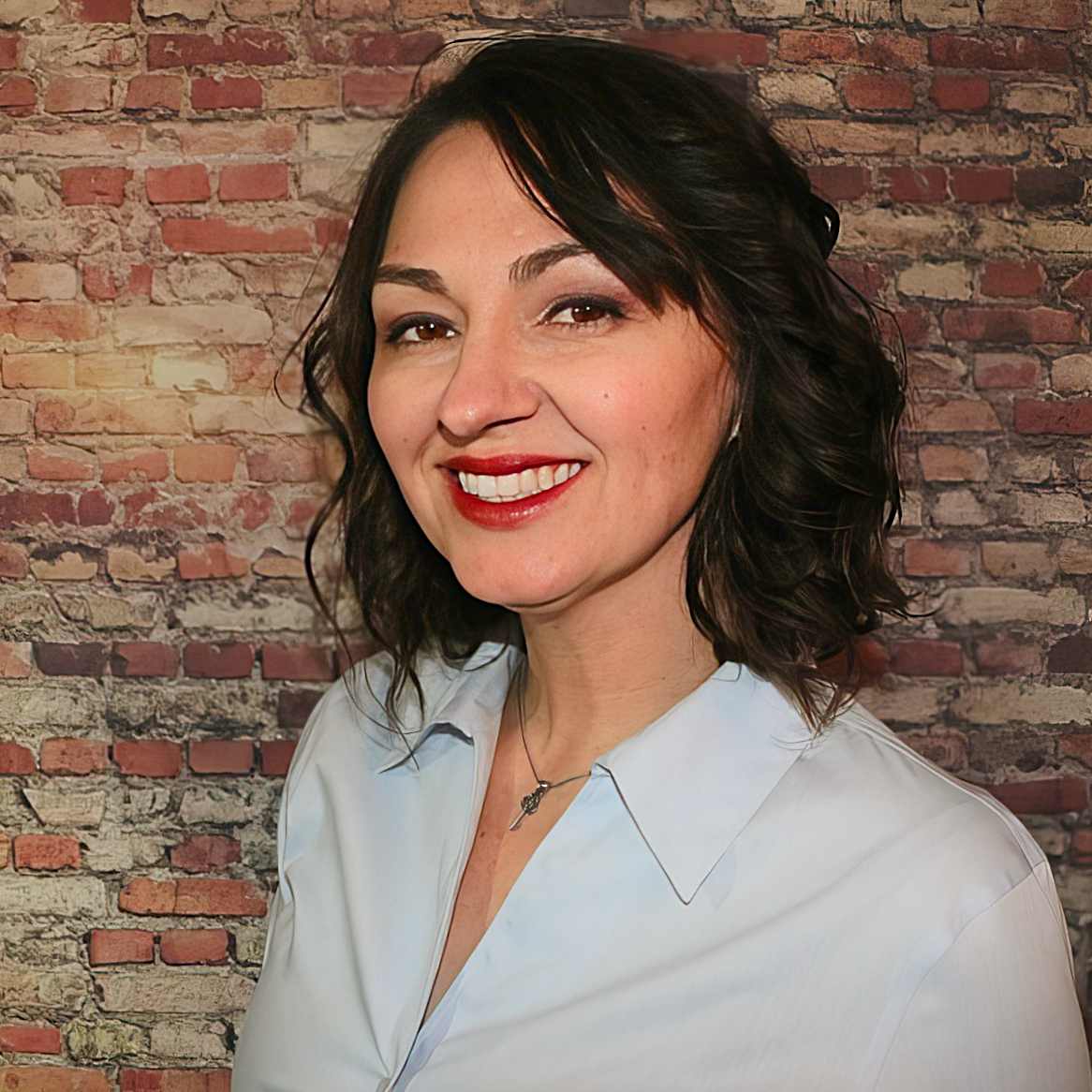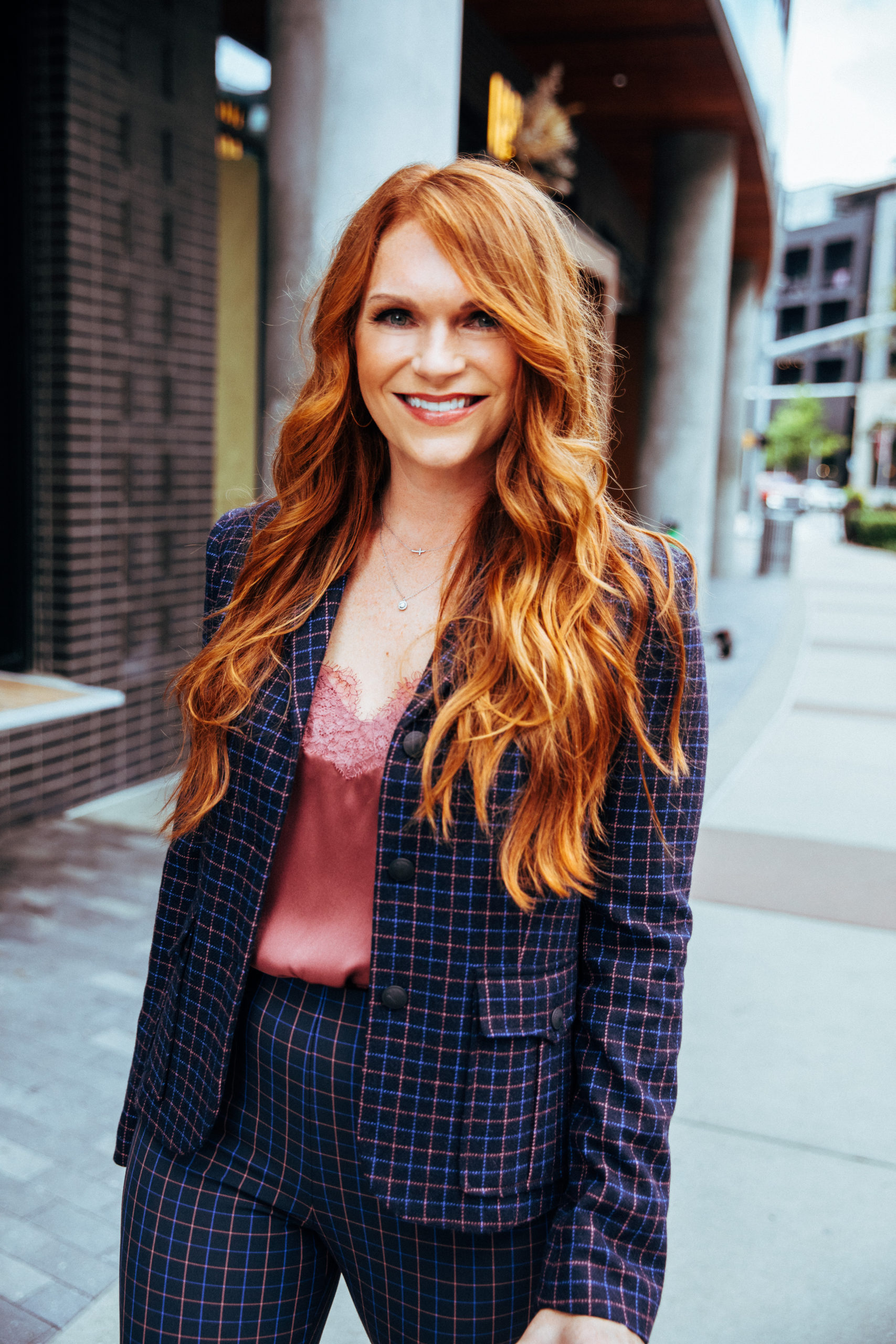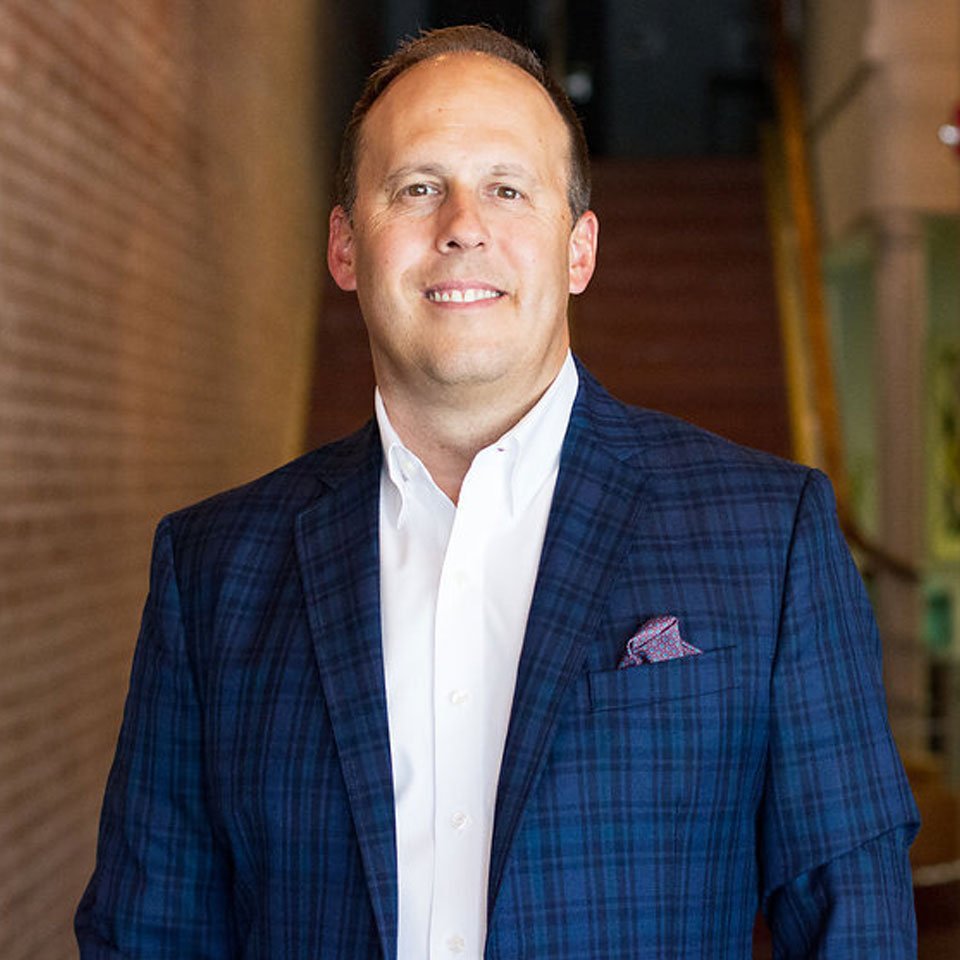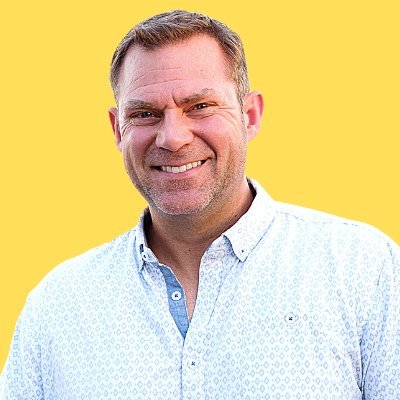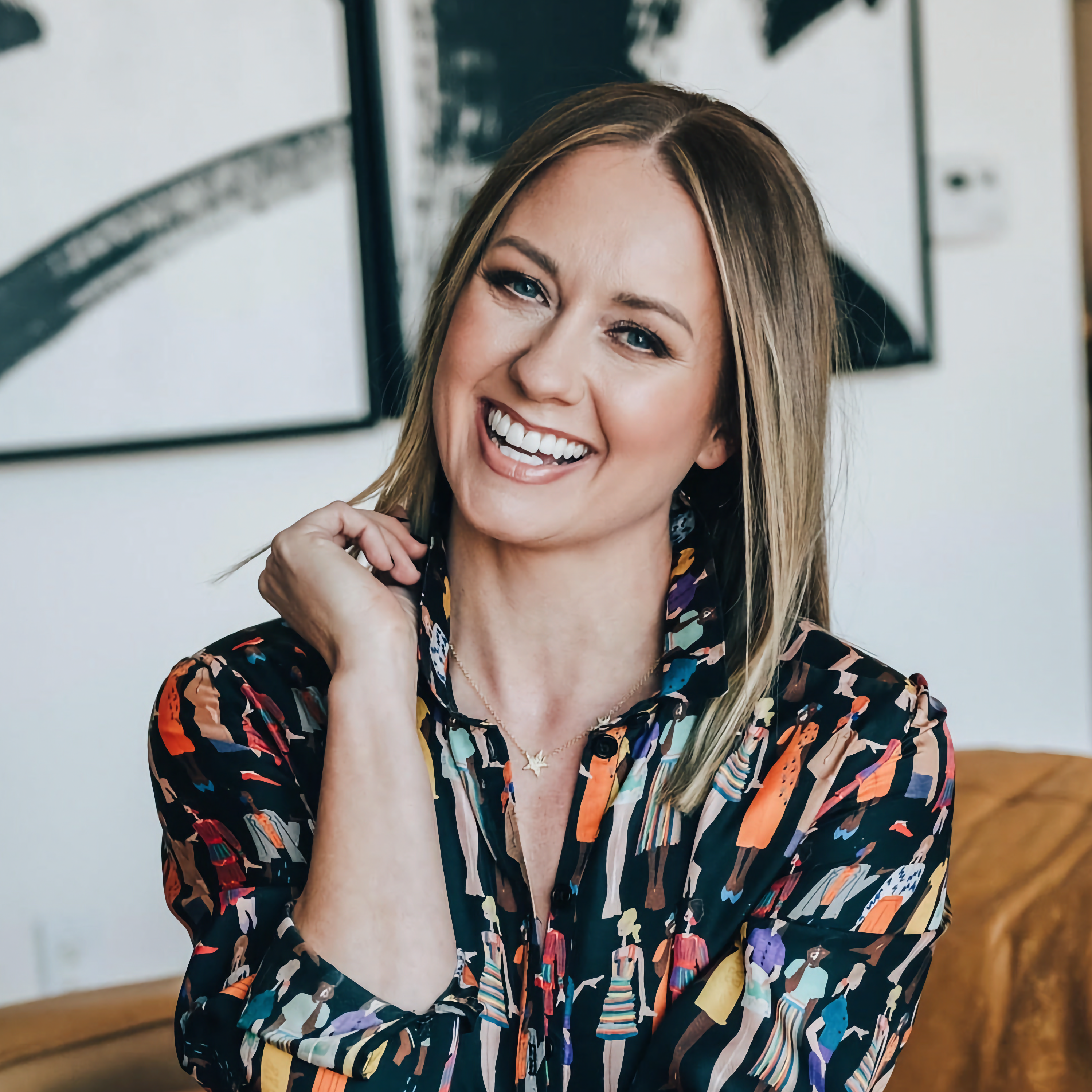Speaker 1: (00:05) [Inaudible] RV: (00:06) Hey, brand builder, Rory Vaden here. Thank you so much for tuning in to listen to this interview, we are so excited to bring you this information and wanted to let you know that, Hey, there’s no sales pitch coming from anything that we do with this is all our value add to you and the community. However, if you are somebody who is looking for specific strategies on how to build and monetize your personal brand, we would love to talk to you and we offer a free call to everyone that’s interested in getting to know us and is willing to give us a chance to get to know them and share a little bit about what we do. So if you’re interested in taking us up on a free strategy call, you can do that at brand builders, group.com/summit. Call brand builders, group.com/summit. Call, hope to talk to you soon on with the show. RV: (01:02) So you’re listening and probably your dream at some point in your life as a personal brand is to like be on good morning America or be on the View, or you know, this America this morning. And you’re about to meet the host. One of the hosts and Emmy award winning journalist, a new friend of mine, Paula Faris. She was a co-anchor of good morning America weekend. And she was also the cohost of the view for like three years. She has been on world news now and anyways, she’s awesome. And I met her at the global leadership summit. She was another one of the speakers, totally connected with her. She has a new book that’s called, Called Out, which we’ll talk a little bit about, but I thought you had to hear her story about how she got to where she is. Some of the things that we can steal from her and learn in terms of some of her skills. And then also hear a little bit about her new book and why she wrote that. So anyways, Paula, welcome to the show. I’m the interviewer and you’re the guest. PF: (02:12) It feels kind of awkward, but you buried the lead, which is one thing that you don’t want to do in broadcast journalism. Don’t bury the lead. You forgot to mention that I am the global leadership summit, cornhole champ in some capacities, because if Rory just mentioned that we met at the global leadership summit in Chicago, what he failed to mention was that I schooled him in Cornwall and if you’re familiar with unfamiliar with cornhole, some people call it what what’s bags, which I don’t understand that, but I have to say you were really gracious in defeat though. So RV: (02:54) As long as you want, cause we’re going to edit this entire section out. So just let me know when you’re done. PF: (03:00) I’m done. I’m done. RV: (03:03) Yeah. Well, you, weren’t the only person who embarrassed me. There’s a great video of Sadie Robertson Sadie, Huff destroying me as well. So, you know, I wouldn’t, yes, it’s true. It is true. But I wouldn’t, I wouldn’t take too much pride in it. You weren’t, I’m not like a formidable foe. PF: (03:22) Oh, well, I, listen, I think there’s plenty of room for growth there. RV: (03:27) Definitely. Definitely. Well, so I, I just thought, you know, it was really cool because you got at GLS, you, you were, you got, I got to see you kind of in both roles, like you were kind of doing the hosting kind of MC thing. And then you were also speaking about the, about the new book, but I, you know, short of just thinking you’re awesome and you know, me and AJ kind of connecting with you and your daughter and just like that whole thing, I really thought, wow, this is a rare opportunity to learn about hosting because I think like a lot of our clients and even myself, my dream was to be a speaker. Like I wanted to be a speaker and there’s a lot of people who talk about that and then there’s like writing and then there’s social media, but more and more like to me, the podcast medium is the most rabid fan base that we had at our former company. RV: (04:25) And it’s still the most rabid fan base of email and social and book readers and people who see me even speak live. Our podcast listeners are, they are there week in and week out. And yet nobody talks about how to be a great host. Like where do you go to, to learn this? So I really just want to hear, like, how did you even get started and, and how did it become, how do you become an, an a co-anchor of good morning America? Like, or the view, like how do you get to that level? So just, you know, tell us a little bit about that. PF: (04:59) Sure. Well, I didn’t grow up thinking that I wanted to be a broadcaster. It just kind of happened. My high school drama teacher, his name was mr. Barsoon, and he would, he would continually cast me as the narrator of our school productions. And of course I thought I was like a leading lady and he thought otherwise, so he cast me as the narrator and I actually really loved the role because you’re telling the story and you’re really setting the stage and setting the tone. And he’s the one when I was kind of floundering in my junior year in high school, I said, I don’t really know what I want to go to college for. He said, you should consider broadcasting because he knew who I was inherently. I’ve always been innately, curious my nickname growing up, Rory was Paula 20 questions. So I’ve always been innately curious. PF: (05:59) I love to ask questions. I like to champion and challenge people. He knew that about me. And then coupled with the fact that I can tell a good story would be my intonations and connecting with people the way that I narrated the school productions. So he, that was honestly the first time I thought about going into broadcasting. And so I did, I went to college for it, but I, instead of pursuing on air, I pursued off-air. So I was producing, editing and writing because I wasn’t confident in who I was. I was so scared of failure. And, you know, fear is one of those. It’s one of those tenants that has gripped me throughout my life and paralyzed me from taking the next step. And so fear for a long time, paralyzed me from really pursuing, being on camera, because I thought I wouldn’t have the words to say, even though I had people speaking life into it, I had my college professors, I had my high school drama teacher. PF: (06:56) I had people around me saying that this is what you’re inherently good at, and you’re comfortable on camera. I didn’t believe in myself. And it wasn’t until nine 11. When I was working in radio sales when nine 11 happened, I was so gripped by the coverage and the ability of these broadcasters and hosts to just unite the country through tragedy and the way that they were able to tell a story and tell it sensitively, with dignity through pain. I was, I really felt like that was the first time I accepted that dream for me, that that was the first time that I accepted the dream that other people had for me, because I, I said, okay, I’m going to step into my fear. And so I applied, I quit my job in radio sales. I was making killer money for a 25 year old. PF: (07:46) I was making like 50, $60,000 a year. We’re talking, you know, nine 11. So 2001, I quit my job. And I said, I’ve got to get back into broadcast. I’m going to pursue this. I’ve got to stop allowing fear to grip, to grip me. And I applied at the local television stations in one station called me back. And he said that he wanted to bring me in for an interview to be a production assistant. I was going to make seven Carolina are in Dayton, Ohio at the time I was in Dayton, Ohio. And I got hired to be a production assistant, making seven bucks an hour. And I had told him, in the initial interview, I said, I eventually want to report. I know that Dayton is a large market. I doubt it’s going to happen here. And he said, yeah, it’s not going to happen here. PF: (08:33) But unbeknownst to him in my downtime, I was borrowing the camera equipment battery pack the tripod from the guys in the sports department on my downtime. I’ve put together a tape. I shot my own standups, which if you’ve never worked in television or worked with a video recorder or of any sort, and you know, it’s hard to shoot your own standups. I had nobody helping me shot my own interview is all my highlight, but edited it. I handed it to the news director and I said, I just want you to take a look at this. His name was Ian Rubin. I said, Ian, if you could just take a look at this and give me some constructive feedback, I didn’t anticipate him to put me on the air at all. I just was literally trying to get some feedback. And he took a look at it and said, you did this by yourself. I said, yeah, I shot it. I edited it. And that’s where my production my production, RV: (09:19) You stole the equipment, right? So he was, I’m sure he was impressed by that. PF: (09:24) Yeah. I stole equipment yeah. RV: (09:30) Resources at the office too. PF: (09:32) I, my downtime, I, my downtime, but he asked me to make another tape for him, a resume reel as we would call it. And I was in the midst of making that and he decided to put me on the air. And that was that I had worked in Dayton, Ohio, that I worked in Cincinnati, Ohio for three years. And then I moved up at the chain to Chicago, which is the number three television market. And then nine years ago, I got the call from the network, which is the pinnacle. It’s like getting a coaching job in the NFL. Okay. You started PV leagues and you moved your way up. I got a job at ABC news and they wanted me to anchor their overnight newscast. And I was like, you have an overnight newscast. So I, I initially went to ABC nine years ago with my family, two little kids. We moved from Chicago to New York. And I anchored the overnight news. I worked third shift. I did that for a year. Then they promoted me and then they promoted me again to good morning, America weekend anchor. And then they promoted me again to, you know, cohost of the video. So it happened quite quickly, but it was through a lot of hard work and tenacity to get promoted RV: (10:41) When they tell me. So like, when did you, what year is it that you get on in Dayton? And then what year do you get to ABC overnight and then good morning America. And then the view PF: (10:51) 2001 is when I was on the air in Dayton, Ohio. RV: (10:56) Okay. So you went from seven bucks an hour, PF: (10:59) 2001 to 2002 was my first like was in Dayton, Ohio. But I, by the way, when you put me on the air in Dayton, I still didn’t get a pay raise. So I was still making seven bucks an hour, but that’s why I say, take the opportunity, get your foot in the door and kick it down. Don’t wait for the opportunity to come to you. And that’s what I tell a lot of young kids. They’re like, well, I don’t want to take this, take it and prove yourself. And you make it what you want because no one, he didn’t tell me that interview. You know, if you want to report, you can borrow the equipment. Like you, you have to take your, and you have to take the initiative and you have to dream for yourself and you have to be tenacious and be persistent. Nobody told me that that was a possibility, but I just, I wanted to go for it. RV: (11:43) Yeah. And I just, I mean, when you go like, Hey, I’m going to be on TV. And it’s like, woo, you’re making seven bucks an hour. Like get excited. Like what could feel further away? Like the national network morning show, like you couldn’t possibly feel the further away than seven bucks an hour. And so then when do you get to New York? When do you go to ABC? PF: (12:05) I went to New York in the end of 2011. So 10 years later and that I good morning, America happened in August of 2014. And I anchored that show for four years until September of 2018 and write about it. I got burnt out. RV: (12:22) Yeah. But that was, so that was a, still a 13 year. I mean, that was a 13 year journey as, as a host, which I think that’s, that’s really powerful to see, like even that’s fast. But it’s third. It’s still 13 years from dream to reality. And I think there’s a lot of people that go, Hey, I’m going to start, I’m going to start an Instagram account today. And I hope to be making six figures within two months. And then if it doesn’t happen, it’s like, Oh, I suck. And it’s like not, it does not really. RV: (12:52) So what about, can we talk about the hosting part? RV: (12:58) What do you think is the difference between a good host and a great host? PF: (13:07) Their ability to connect that? I think that’s, if I’m watching the news or I’m watching a show and I feel like that person is speaking, isn’t speaking to me, they’re speaking. Or speaking at me, they’re speaking to me and speaking with me, if they’ve made me part of the conversation, if they’ve invited me into the conversation and invited me into the environment, then I feel like that’s a connection because so often, you know, we’re so polished and, it’s funny because my sister is getting ready to start a YouTube channel. And her husband started a YouTube channel and I’m looking at their videos and I’m like, guys, you need to be more conversational. And it sounds so simple, but it’s so true because if you’re too stiff and too polished, you’re speaking at people, you don’t want to speak at people. You want to, the only way you invite them into the conversation is by being conversational. PF: (14:10) Okay. Well, looking into the lens and pretend, I always say, pretend like you’re talking to one of your closest friends, somebody that you let your guard down around. And I asked, I encourage my sister to do this one exercise. I said, I want you at the very beginning to verbally say your best friend’s name or your husband’s name at the end of the, at the end of the sentence. So whatever she might be saying, she’d be like, so today drew, I want to tell you about this really cool thing I want to do. So you’re, you’re injecting that person’s name into, into what you’re articulating. And then you take a step back and then you’re just thinking that person’s name, and then you’re seeing their face. But what you’re doing is you’re, you’re, you’re creating a conversation, you’re being conversational and you’re inviting people and you have a conversational tone, right? PF: (15:02) So I think connecting with people and you connect with them by being conversational. Because when you’re, when you’re speaking, you really only have one path. If you’re reading something, you know how many times they say you have to read it X amount of times in order to absorb it. But that’s why it’s so important. You have one shot when you’re speaking and you have to be incredibly engaging and incredibly conversational. And not that you’re dumbing it down by any stretch of the imagination, but just connecting on a level where you’re being extremely conversational, I think is the most important thing. And I think that’s where people have felt like they’ve connected with me and they feel like I’m authentic. If you can also be authentic within that conversation. I think that’s a, that’s a win, win combination. RV: (15:52) Were you always conversational as a host or did it, did you develop, was it intentional? Was it accidental? Like how did you like that exercise is awesome, but how, which I, I think that’s killer like of going, Hey, pretend you’re actually talking in real life. Like there is a one person on the other side of the camera and saying their name as powerful. Is that, is that something you had to develop consciously? PF: (16:16) Totally. I think, I mean, I, I think there are certain aspects that you’re born with it or you’re not, but I think it’s definitely something that I had. It’s a skill I had inherently a little bit of, but I had to grow it and the way that I had to grow it was just, you know, if you look at some of my early work, it’s awful, it’s not great. But I, you know, I think I was trying too hard. Sometimes we try way too hard to be funny, or we’re just trying too hard in general. And I, I think just the more relaxed I got weirdly, it, it’s not like I cared less, but it was just the more relaxed I got and the more comfortable I was, some of that came with experience. But some of that just came with being confident in my own skin and being confident about what I was talking about and confident about the topic. I think if you’re not prepared, you won’t be confident and you’re, and you will be conversational and you can, or your ability to connect is based upon whether or not you’re prepared. That’s one of my big fears is not being prepared. RV: (17:25) Yeah. But, okay. So let’s talk about the preparation thing, because how much of hosting is like on a teleprompter versus like you’re talking about being conversational, but some of it is on a teleprompter, isn’t it? PF: (17:43) It’s very tough. And that’s the thing I was when I first, when I had my first gig in Dayton, Ohio everything, when I was anchoring, I would what we say. And I don’t want to get too deep in the, in, you know, in the weeds with television speak, but you know, you’d be on cam and you’d say, here’s my role, acute a video. And I would just give them a roll cue to VO. So we’d come back on cam and that you’re on camera. Like, Hey, tonight, the Dayton dragons are playing then blah, blah, blah. And you’ll never guess who showed up and who showed up with that’s in the prompter would be my role cue to VO. Okay. So VO means voiceover. So that means when we go to tape and I’m voicing over the highlights. When I first started, I would just say roll cue to VO, and I would ad lib everything. PF: (18:29) I would ad lib the highlights cause I started doing sports. That’s how I really cut my teeth in television. And when I was out in the field reporting, you don’t have a teleprompter out in the field either. So I’m learning probably a little differently than, than a lot of people, a lot of my other peers and colleagues. And just cause that’s the way that I was trained in our sports department. So the challenge is, is when you have a teleprompter, it can. And I feel like in sports, sports anchors are usually really good at their job because they’re, they can, they’re quick on their feet. They can improvise and they can tap dance and they can talk around things. And they’re, you know, they’re, that’s just, that’s the sort of situation that they’re used to. They’re used to add living highlights and ad libbing stories, whereas a news it’s much more produced. PF: (19:23) And so when I came from sports to news, because when I, when I was in Chicago, Dayton, Cincinnati, and Chicago, I did sports. And then I decided to do news, which is one of the reasons I took the job at ABC because they wanted to give me an opportunity to kind of get my news leg, my news, sea legs, because I’d done sports for so long. And everything’s very scripted and it’s, it’s challenging because it’s hard to have that conversational tone when, when everything has been scripted for you. So, but there have been moments where the teleprompter has died and I’m like, finally, you know that this is, I mean, this is, this is how I, this is how I was trained. This is probably where I’m most comfortable. But it is a mix if you’re in the field and you see a reporter out in the field, like in front of the white house or in front of a stadium, there’s no, there’s typically no teleprompter for any of that. That’s just all off the cuff. But if you’re in studio, most of the time there is a teleprompter and I hate teleprompters because I just think they become a crutch and you just, and they take that conversational tone, which I think is so imperative to the connectivity. They remove that from the situation. RV: (20:33) Now what about like on the V on the view? Oh, that’s not a teller. PF: (20:38) No, that’s like, no, there’s no teleprompter. There, there might be a teleprompter for sponsored segments, but no, that’s all off the cuff and it’s, it’s, it can be a little, it’s very nerve wracking because you’re not really sure what everybody’s going to say. Whoopi Goldberg, I love Whitney. And she would always say, you know, we would have the hot topics meeting in the morning. We would show up at, I think our meetings were at eight 30. Yeah, eight 30. And then the show was 11 o’clock Eastern. And so we would have the hot topics meeting and we get this huge packet. And most of the times we didn’t get it the night before, but then it was revised by morning. And you just, we pick out the stories that we want to talk about that day. And based upon our fire and our passion for the stories, the producers are then pick the stories that we are gonna do for the show. PF: (21:31) Right. And what we are going to cover. We didn’t. And if we got a little too heated in the hot topics meeting at eight 30, what we would say, save it for the table. So she didn’t want us to totally go there cause she didn’t want, she wanted him so much of and kudos to her. She wanted so much of it to wait for the table for the hot topics table so that we didn’t know where we didn’t know what the other person was going to say. Cause it keeps you on edge and it keeps the conversation like really fiery. So that was a situation where it would, we would say, yeah, let’s not, don’t give too much of it away. Save it for the table. RV: (22:10) Yeah. So you went from like totally impromptu to totally scripted to all the way back to like completely impromptu. PF: (22:18) Yes. Like sitting on the edge of my seat and not sure what the hell was going to happen. It’s very, it can be scary. And for a journalist, you know, and I, I had the added pressure. I was still, when I was doing the view, I was still anchoring good morning, America weekends. So I was still a journalist and I, I didn’t want to say anything that was going to foil my news career. Cause I, my number one objective was to stay neutral on, to stay objective and really kind of like tip toe around a lot of the political talk because when I was first hired, this is pre-Trump this isn’t, you know, he, he was just throwing his name into the hat and the primaries and you know, and then he became a nominee and then, and then he became president and then it became a really political show. PF: (23:03) And but it was tough for me cause I was given explicit directions by my bosses on the news side, ABC news that I couldn’t give political opinions because of, because I was a journalist and still anchoring one of their flagship shows. So when it became a new, a strictly, when it became very political, the show, it was really uncomfortable for me. And I felt like I couldn’t go there and I felt like I couldn’t give the audience what they really, really wanted. And that was probably one of the first times that I felt like I felt like a failure in many regards because I wasn’t able to connect with the audience because the audience it’s called the view for a reason. They want you to give your opinions and give you our muse. And I would give my opinion and views on most everything except for abortion and politics. And that’s really the, that the show started turning towards when it became political. It was really uncomfortable. RV: (24:03) You think this translates pretty directly for a podcast host. I mean like, or a YouTube, like a YouTube channel. Like if you’re not, do you think this con this topic, these kind of lessons, do you think they apply to just somebody with a Mike? You know, like me, right. I mean, is it going, is it the same? Is it the same idea? Whether it’s, you know, national television or it’s a local podcast? The idea is just to connect is to connect honestly with the audience. And that is the most important thing. PF: (24:34) Absolutely. I think that is a, that’s the baseline, that’s the foundation of everything. And you can do that through a myriad of ways. Like the way that you were able to connect with me early on, like kind of telling a joke and cornhole RV: (24:48) Part of my strategy. So we were already connected, PF: (24:52) But you put me at ease as a host. I will tell you, put me at ease because you have done your research on me. And I, I detected that just from what you, the way that you introduced me. And for me, if I’m doing a big interview with someone and I haven’t read their book and that’s why I’m sitting down with them, or if I haven’t done my homework they’re going to know that, okay. So what you do is I always say it’s so important to do your research on whomever you’re interviewing whoever you’re sitting down with, whether you’re hosting a podcast or you’re conducting an interview, do your homework. It’s so important to put the other person at ease and you don’t have to, like, you can just, you don’t have to say, Oh, I read your book. And it’s amazing. You can just say, yeah, I read this. PF: (25:36) I, you know, I remember this one line in your book and you said this and that to them triggers, Oh my gosh, they took the time to read the book or they took the time to do some research on me. And it’s just one book to open the book, but you’ll see that other person guard kind of come down and like, and I can open up to you now because you have put me at ease and you’ve made me feel comfortable. And you showed me that you care enough about this interview, that you’ve done a little bit of homework, but if you haven’t done any homework and haven’t done any research, then the way that I interpret that as the person that’s being interviewed is that you don’t care. And if you don’t care, then why should I care? Why should I open up? RV: (26:19) Interesting. All right. So last little part here, why’d you leave 13 years. You’re like at the top of your game, you’re at two, I mean, literally two of the biggest shows PF: (26:31) More than 30 years. More than that. RV: (26:33) Oh yeah. It was 13 to get there. And then you were like, you were at the peak, you were like doing the thing here for five, six years. And then all of a sudden you made a decision to leave. PF: (26:44) Yeah. I made a session, a decision to step away to pump the brakes at the height of my career, which I thought was totally insane. And, but I was burnout. And I think what I was doing for so long as I was chasing these accolades and achievements, and it never seemed to satiate and I became addicted to this thing. And so often we misplace our significance in something that shifts like a job or your bank account. And for me, I had misplaced my significance in something that shifted and I was at a professional high, but it was at what cost, what good is it for a man to gain the world, but to lose his soul? And I just, it came for me, it came at too high of a cost. I, my relationships with my, with my kids and husband were really not doing well and I wasn’t going to church. PF: (27:34) My health started suffering and I thought, okay, I don’t think I was called to do this. If this is what it was going to cost. And I don’t think everybody is called to walk away or to blow it up, you know, for all intents and purposes. But for me, I really felt like, and I’m a person of deep faith. I really felt God called me out of that space where I was addicted to what I did. I was really scared to walk away cause I was scared. I was like, I built this career. I don’t want to just disappear into the ether. I was scared of being irrelevant. I was scared of what people would think of me. I didn’t know what was on the other side. I just knew I needed to get my life back because I was working crazy hours and I wasn’t seeing my husband and kids. PF: (28:21) And the things that I said were of value to me, Rory, you wouldn’t have known those based upon the choices that I was making professionally and personally. So I didn’t really truly walk away until I went through a really tough season. Like a season that a lot of us are going through right now with the pandemic. But my personal hell happened in seven months and I had a miscarriage with an emergency surgery. Then I got hit in the head before a live shot for good morning America. Some kid threw an object at my head, 60 miles an hour, had a concussion. The day I was cleared to go back to work, I was out of work because of that incident for three weeks. And the day I was cleared to go back to work, I get in a head on car crash and then I got influenza and then I got pneumonia and that was seven months. PF: (29:07) So I knew at that point, it wasn’t just a string of bad luck. That was, God’s saying, you need to slow down. You need to find out who you are because you have, you have wrapped up your entire identity in this, but it wasn’t until I stepped. And it was after that season of how I decided I needed to slow down and walk into this space where, you know, I told my bosses, they were gracious enough to kind of like, you know, they said, well, we want you to stay here. We’ll let you work Monday through Friday. And you can walk away from the view and from good morning, America weekend. And you know, he can be a correspondent and I asked them to a faith podcast, but I’m still kind of figuring it out. I knew I just needed to get my life back, but they were gracious enough to let me do that. PF: (29:47) And but it was scary cause it was, I write much of the book in that space where I walk away from these two things that I didn’t realize that defined me and they had, and I had no clue who I was outside of them. I didn’t, I didn’t know myself anymore because I was Paula Ferris, the anchor of good morning America and coasted a view. And then all of a sudden I wasn’t, and I, I didn’t know how to process that. And so I read a lot of the book about finding out, like, who are we outside of what we do outside of the things that we place our significance in. And there’s nothing wrong with loving what you do, but how do you find that balance between loving what you do and not being defined by what you do? And so that’s what much of the book was for me finding out the parts of me that won’t change in a pandemic and the parts of me and so who I am and that won’t change in a personal crisis, just digging into that because our society tells us to lean in and to find our calling and it’s always career related. PF: (30:44) And we do when we press in and guess what career will change at some point in our lives. And if we, you know, status on Instagram will change, our bank accounts will change. And if we placed our significance in those things that are going to shift, and we’re not going to know who we are outside of them. So it’s so important to find your true purpose outside of doing, to find to discover that personal mission statement, but to find the parts of you that won’t like, what parts of you won’t change. I’m in a crisis for me, I would have said, I’m Paula Ferris. I’m the anchor of good morning America and the view. And, and when that changed, I had to figure out what my mission statement was. And now it’s my purpose statement. I just say, I’m Paula Ferris. I love Jesus. PF: (31:28) I am a wife, I’m a mom. I’m curious, I ask lots of questions and I like to champion and challenge people. And so those, those, you know, championing people and being curious and question, asking a lot of questions. Those made me an effective communicator and made me an effective broadcaster. But those things aren’t going to change the way that I, that I go about manifesting them will weather through it’s a broad broadcast capacity or through another capacity. So that was really important for me to, you know, to figure out and when I wrote the book, RV: (32:01) Wow, well, the book is called, called out. And of course you can get it anywhere. Great books are sold. Don’t go looking for it. Wherever crappy books are sold, you won’t find it there. Where do you want people to go Paula, to connect with you? Or if they want to link up, I mean, obviously Instagram and all that kind of stuff, but where would you point people? PF: (32:24) You know, I, I developed this gift of telepathy during the Panasonic. So people can just reach out to me through their minds if they want. I know I don’t know what happened, but Instagram’s probably the best place to reach me. And it’s Paula Ferris. My last name is spelled just like the city of Paris with an act like Frank, Paula Ferris. So, and pick up the book, support it. I really appreciate it. Let me know how, how how you connect with it. And it’s just been great to see, to hear from people and say, Oh my gosh, I feel like you were writing my story men and women indiscriminately. So yeah, reach out to me. I’d love to hear from you. RV: (33:10) Yeah. I love this. I mean if, if you’ve ever had a struggle with identity, which is all of us, particularly those of us with personal brands is separating that, you know, what we want to be seen as, from who, you know, online or wherever, but we really are. This is a really, really key discussion from someone who was at the top of her game and left that all behind. So we’ll link up to called out. We’ll obviously AIG and I’ll do the debrief of this on the next episode, you can check it out, but follow Paula and connect with her. It’ll be interesting to see how she reinvents herself, but in this next phase. And thank you so much for being with PF: (33:53) My pleasure. And I can’t wait for that. That redemptive game of Cornwall, RV: (34:01) I don’t know what you’re talking about. We edited out that PF: (34:04) I beat him at [inaudible].

